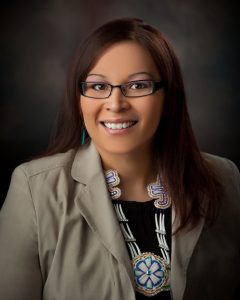Governor Declares Drought Emergency, Warnings and Watches for Kansas Counties
The Governor’s Drought Response Team examines conditions; and recommends updates to the Governor
Effective June 27, Governor Laura Kelly has approved updated drought declarations for Kansas counties with Executive Order #22-06. This drought declaration places all 105 Kansas counties either in watch, warning or emergency status.
“A significant portion of the state of Kansas has experienced drought or abnormally dry conditions for the past several months,” said Governor Kelly. “Unfortunately, these conditions are forecast to persist or get worse, so I strongly encourage Kansans to be mindful of drought conditions while we work to minimize the threat of fires across the state.”
The drought declaration placed 34 counties into an emergency status, 8 counties in a warning status and 63 into a watch status. This action was recommended by Connie Owen, Director of the Kansas Water Office and Chair of the Governor’s Drought Response Team. Although most of Kansas has experienced high precipitation this past month, a record-breaking heat wave has been making its way across the area. While most of eastern Kansas is currently drought free, the forecasted hot and dry conditions will likely lead to the rapid intensification of drought conditions in portions of the Midwest over the next few weeks.
“We have watched drought conditions in parts of the state continue to get worse since this past fall or longer in some areas, causing concern with groundwater supplies, crop production, elevated wildfire risk and more,” said Owen. “The Governor’s Drought Response Team will continue to monitor the situation and make recommendations to the Governor as necessary. As future outlooks call for hot and dry conditions to continue into July, the potential for a “flash drought” is likely.”
Through an interagency agreement between the Kansas Water Office, Kansas Department of Wildlife and Parks and Kansas Division of Emergency Management, counties in emergency stage are eligible for emergency use of water from certain state fishing lakes. These counties also become eligible for water in some Federal reservoirs.
Individuals and communities need to contact the Kansas Water Office for a water supply request prior to any withdrawals from lakes. These requests will in turn be referred to the appropriate office to obtain necessary permits to withdraw requested water.
This Executive Order shall remain in effect for those counties so identified until rescinded by Executive Order ending the declaration or revising the drought stage status of the affected counties.
Effective immediately, Executive Order #22-06:
- Declares a Drought Emergency, Warning or Drought Watch for the counties as identified below;
- Authorizes and directs all agencies under the jurisdiction of the Governor to implement the appropriate
watch, warning or emergency level-drought response actions assigned in the Operations Plan of the Governor’s Drought Response Team.
The Governor’s Drought Response Team will continue to watch the situation closely and work to minimize the effects drought has on Kansans.
For more detailed information about current conditions, visit the Climate and Drought webpage on the Kansas
Water Office website at kwo.ks.gov.
County Drought Stage Declarations:
Drought Emergency: Cheyenne, Clark, Comanche, Decatur, Edwards, Finney, Ford, Gove, Graham, Grant,
Gray, Greeley, Hamilton, Haskell, Hodgeman, Kearny, Kiowa, Lane, Logan, Meade, Morton, Ness, Norton,
Rawlins, Scott, Seward, Sheridan, Sherman, Stanton, Stevens, Thomas, Trego, Wallace, Wichita.
Drought Warning: Barber, Ellis, Pawnee, Phillips, Pratt, Rooks, Rush, Stafford.
Drought Watch: Allen, Anderson, Atchison, Barton, Bourbon, Brown, Butler, Chase, Chautauqua, Cherokee,
Clay, Cloud, Coffey, Cowley, Crawford, Dickinson, Doniphan, Douglas, Elk, Ellsworth, Franklin, Geary,
Greenwood, Harper, Harvey, Jackson, Jefferson, Jewell, Johnson, Kingman, Labette, Leavenworth, Lincoln,
Linn, Lyon, Marion, Marshall, McPherson, Miami, Mitchell, Montgomery, Morris, Nemaha, Neosho, Osage,
Osborne, Ottawa, Pottawatomie, Reno, Republic, Rice, Riley, Russell, Saline, Sedgwick, Shawnee, Smith,
Sumner, Wabaunsee, Washington, Wilson, Woodson, Wyandotte.


